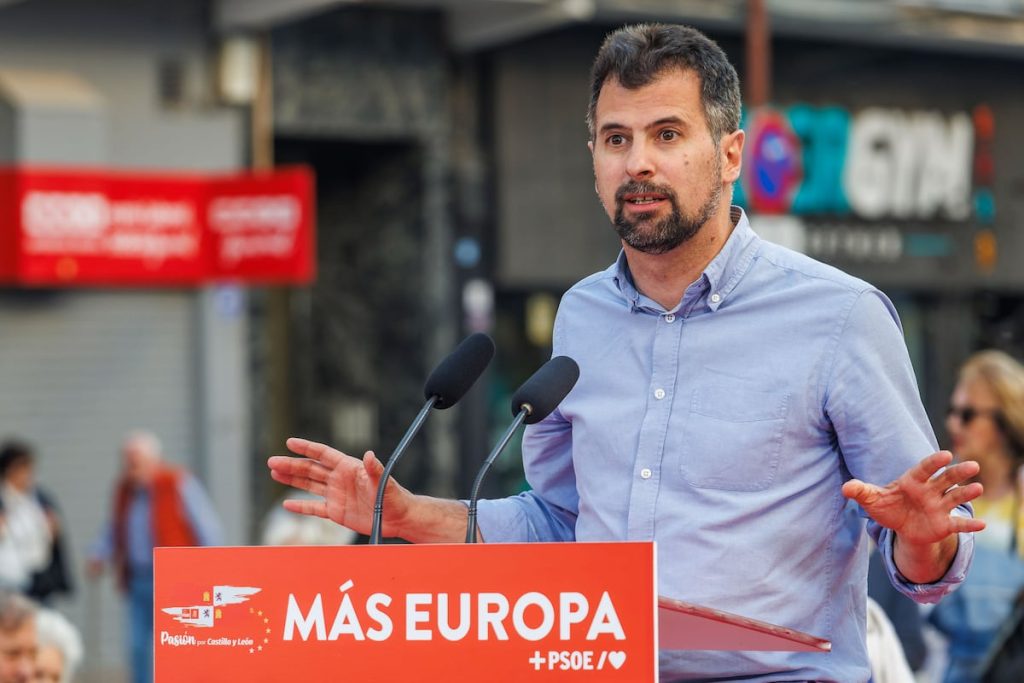The restructuring that the Spanish Socialist Workers’ Party (PSOE) will face in the coming months has sparked the most serious crisis between Ferraz and one of the socialist federations since Pedro Sánchez was reelected as general secretary in 2017. The approval on Thursday by the socialists of Castilla y León of a primary election schedule that could be resolved by the end of October has caused a harsh and unprecedented reaction from the federal leadership. The PSOE’s ethics and guarantees committee suspended the primary process late on Friday, arguing that regional congress processes should take place after the 41st Federal Congress scheduled for November 29 to December 1 in Seville. There is no recourse against this decision to any other internal body. The leader of Castilla y León, Luis Tudanca, expressed his acceptance of the decision while defending the voice of the membership that was prevented from participating in the primaries.
The move by the Castilla y León federation was seen as a challenge to Ferraz and caught the party’s headquarters off guard, where the intention was for leadership renewal processes to take place after the Federal Congress in Seville where Pedro Sánchez will be confirmed for a new term at the helm of the party. The regional committee approved the proposed schedule by 105 votes in favor, 14 against, and 11 abstentions in a meeting that began calmly and ended very tense. Some members objected that the calendar was contrary to the party’s statutes. The Castilla y León federation maintains that their proposal was in line with internal procedures. Ferraz imposed its will quickly, without letting more than a day pass. The regional leadership insists that Tudanca was reelected as general secretary at the previous Federal Congress in October 2021 and that there should be no obstacles to his re-election now.
The tension between Tudanca and Ferraz underscores the simmering conflict between several socialist federations and the federal leadership. The Castilla y León federation planned for candidate presentations to take place from October 8 to 15, with a voting process to follow. The schedule outlined a process that concluded with primary elections for the general secretary position on November 9. Critics of Tudanca felt that this timeline favored his candidacy and made it difficult for any potential challengers to come forward. The support for the primary election schedule by the regional committee further strengthened Tudanca’s position. The response of Ferraz to the disagreement with Castilla y León was swift, reflecting a lack of willingness to negotiate on the scheduling issue.
The uncertainty surrounding potential alternative candidates in Castilla y León, such as the minister of Transport Óscar Puente and the minister of Equality Ana Redondo, remains. The clash between Tudanca and Ferraz highlights the broader internal tensions within the PSOE as it prepares for important leadership decisions in the coming months. The party is set to focus on the upcoming Federal Congress in Seville, where Pedro Sánchez is expected to be confirmed as the leader of the party for another term. The fallout from the confrontation with Castilla y León may have implications for other federations and the dynamics within the PSOE as a whole. The party faces a period of internal turmoil as it navigates these challenges and strives to maintain unity while pursuing its political agenda.


